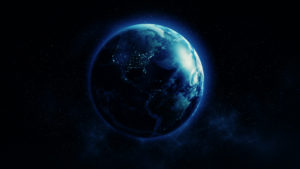
You’ve probably heard our planet referred to as “Mother Earth” but may not have given much thought to it. For some people, this term isn’t just a cute nickname for the blue-green ball of dust and water upon which we live. In addition to the environmentalists engaged in study and activism, those practicing Eco-Paganism may interpret the moniker literally, centering their spirituality around and expressing a deep concern for the state of our planet.
The Roots of Eco-Paganism
The 1960s were a peak time for many types of cultural change. Along with movements working toward social equality and opposing the war in Vietnam, a new awareness grew about the condition of our environment. This coincided with increasing interest in alternatives to Christianity, such as Hinduism, Buddhism and various forms of pagan spirituality.
Writing for Patheos, blogger John Halstead details a few ways in which paganism embraced a greater emphasis on ecological matters in the last half of the 20th century. Halstead explains that some of its variants describe themselves as “nature religions.” He also mentions that three spiritual groups typically cited as influences for many American Neopagan movements either formed or filed for official recognition in 1967:
- Church of All Worlds
- New Reformed Order of the Golden Dawn
- Feraferia, considered to be a forerunner of modern Witchcraft
Halstead points out that 1967 was also the same year in which historian Lynn Townsend White, Jr. published his treatise, “The Historical Roots of Our Ecological Crisis.” Available as an archived document from Science Magazine, it speculates that Christian philosophies promote the idea that humans should “have dominion over creation.” Furthermore, White, Jr. proposes that such an ethos may be to blame for attitudes that favor exploiting the natural world.
In 1970, Church of All Worlds founder Oberon Zell claimed that he had visions of Earth as a living organism. Halstead discloses in a 2014 post that environmentalist James Lovelock further developed the concept with his “Gaia Theory” writings published in 1979. It wasn’t long before paganism, ecology and feminism began to intersect. Perhaps these converging forces led to greater acceptance of the notion that Mother Earth should be preserved and treated as sacred.
Mother Nature and Earth as a Living Goddess
While the image of Earth as our mother resonates with many individuals, the idea has earlier cultural roots that predate Neopaganism. The name “Gaia” comes from Ancient Greece and was used to denote a primordial mother deity that personified the planet. Similar concepts exist in Hinduism, with the goddess Durga serving as a divine maternal figure. She takes on multiple forms and roles, including a Mother Nature aspect called “Mula Prakriti” that gives birth to all life. Durga is also said to sustain and nurture that same life before eventually devouring it in death to restart the cycle all over again.
Beyond Simply “Green” Paganism
As Halstead delineates, many pagan traditions prioritize the health of the environment. However, some spiritual paths have a more intense ecological focus at the centers of their ideologies. One group, the Dragon Network, mentions the idea of “eco-magic,” or “a magical & Spiritual [sic] action for the environment.” It lists rituals and techniques designed to spiritually intervene on behalf of our planet, some of which invoke or request assistance from deities or fairies.
Even in the early decades of the 21st century, concern for our ecosystem is still a substantially important concept within larger pagan movements. Whether it’s a deep reverence for our planet that spills over into everyday actions or eco-paganism that concentrates its spirituality on healing the earth, practitioners continue to find meaning and seek solutions to global problems in both religious rituals and secular activism.

